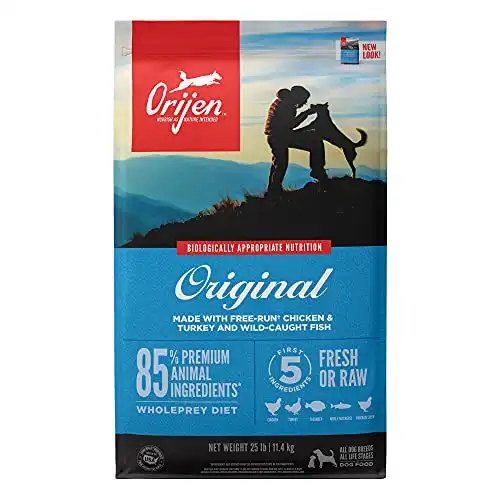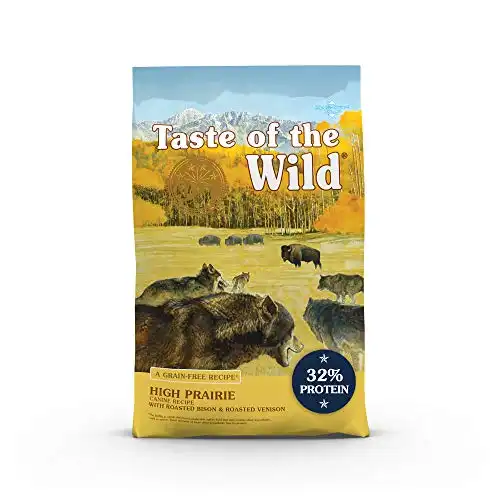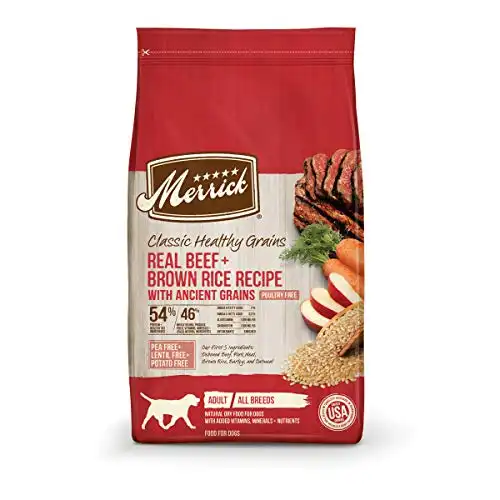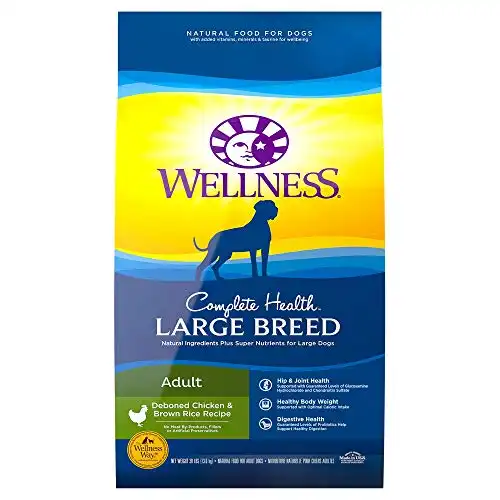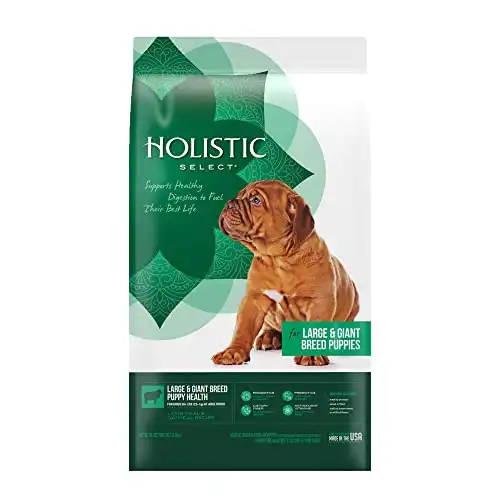Do you love your German Shepherd?
Then you know how important it is to take care of your furry friend! And the most important thing to remember is your dog’s diet.
The thing is that each and every breed of dog has a different nutritional requirement.
So, it’s your responsibility to keep your dog fit and healthy by feeding it the best foods. But before all that, you need to know what are the best foods for your dog!
Today, I’ll help you figure out the best food for a german shepherd.
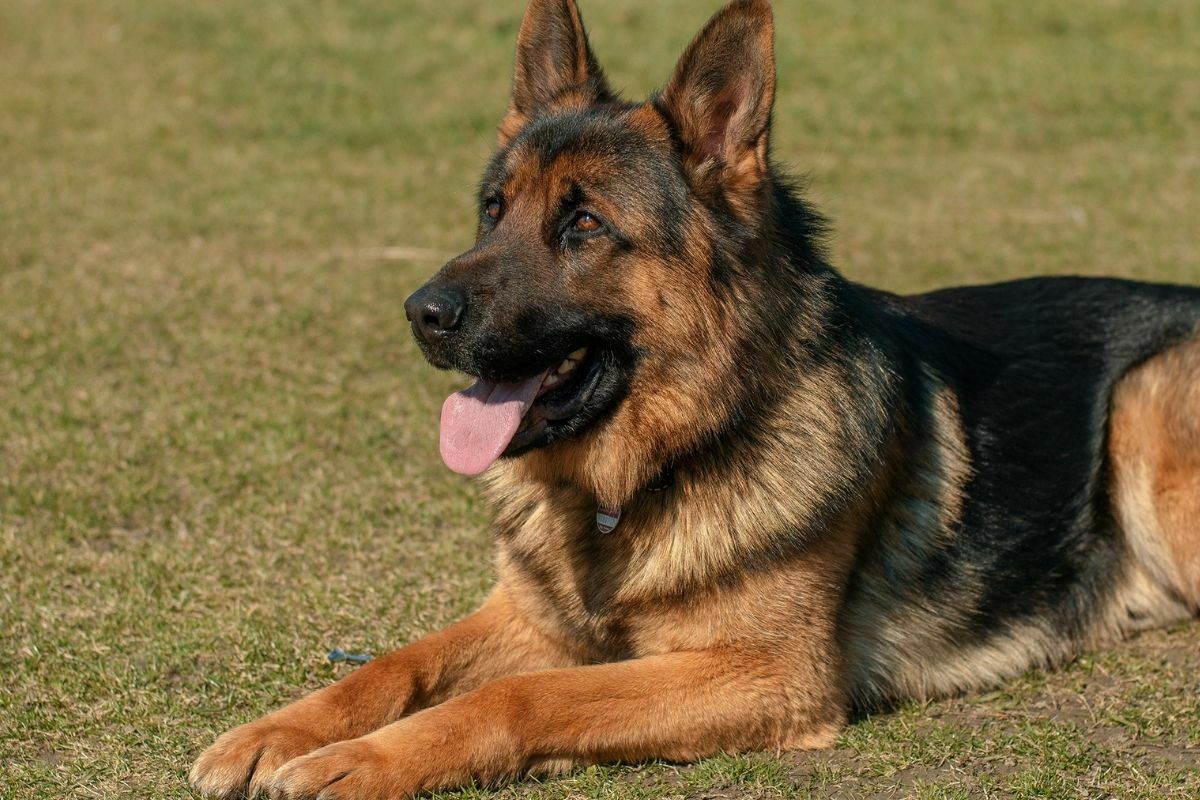
A Little About Your German Shepherd & The Importance of Food
Now, before we talk about dog foods and brands, you must first learn about your German Shepherd’s nutritional needs.
I promise I won’t make this boring!
As you may already know, German Shepherds are basically active and smart dogs. They have an amazing sense of smell, love to work, and can even work for a long time without getting distracted!
German Shepherds are large dogs that weigh between 70 and 100 pounds when fully grown.
You must be wondering why I’m telling you this. I’ll explain…
The thing is, because of their size, your German Shepherd buddy requires healthy blends of proteins, carbohydrates, fats, vitamins, and minerals.
It’s All About The Food That Makes Your German Shepherd Happy & Healthy!
Now that you know that your dog has different dietary and nutrition needs let’s discuss some other important things in depth.
Are you ready? Let’s begin!
The Basic Caloric Intake: How To Not Make Your Dog Fat!
Whenever I go take my dog for a walk, I see a few fat dogs on a leash.
Okay, the word ‘fat’ is an understatement.
The word that I’m looking for is morbidly obese!
What most dog owners don’t get is that there’s something called overfeeding, which is as bad for your dog as underfeeding is. You must strive to hit your dog’s recommended caloric intake!
Let’s take a look at caloric intake, shall we?
- The young pups need about 500 calories per day, and this increases as the size of the pups increases
- Young adults need about 1,500 to 1,700 kcal per day
- Fully-grown dogs require 2,000 and 2,250 kcal per day
- The older dogs require about 1,200 and 1,400 calories because of their decreasing energy levels.
Breaking Down The Calories Into The Good Stuff
Do you think a caloric intake is all that you need to know?
Well, my friend, you’re mistaken!
The things that also count are the stuff that the calories are coming from! And that means we need to take a look at the macronutrients as well as the micronutrients.
I mean, think of it this way. How healthy would you be if you ate plain boiled pasta daily?
You wouldn’t be healthy at all!
That’s because you need more than just carbs to be healthy!
Similarly, your dog needs a diet balanced in carbohydrates, proteins, and fats to be fit, healthy, and happy!
German Shepherds and Nutrition: All About Your Dog’s Macros and Micros!
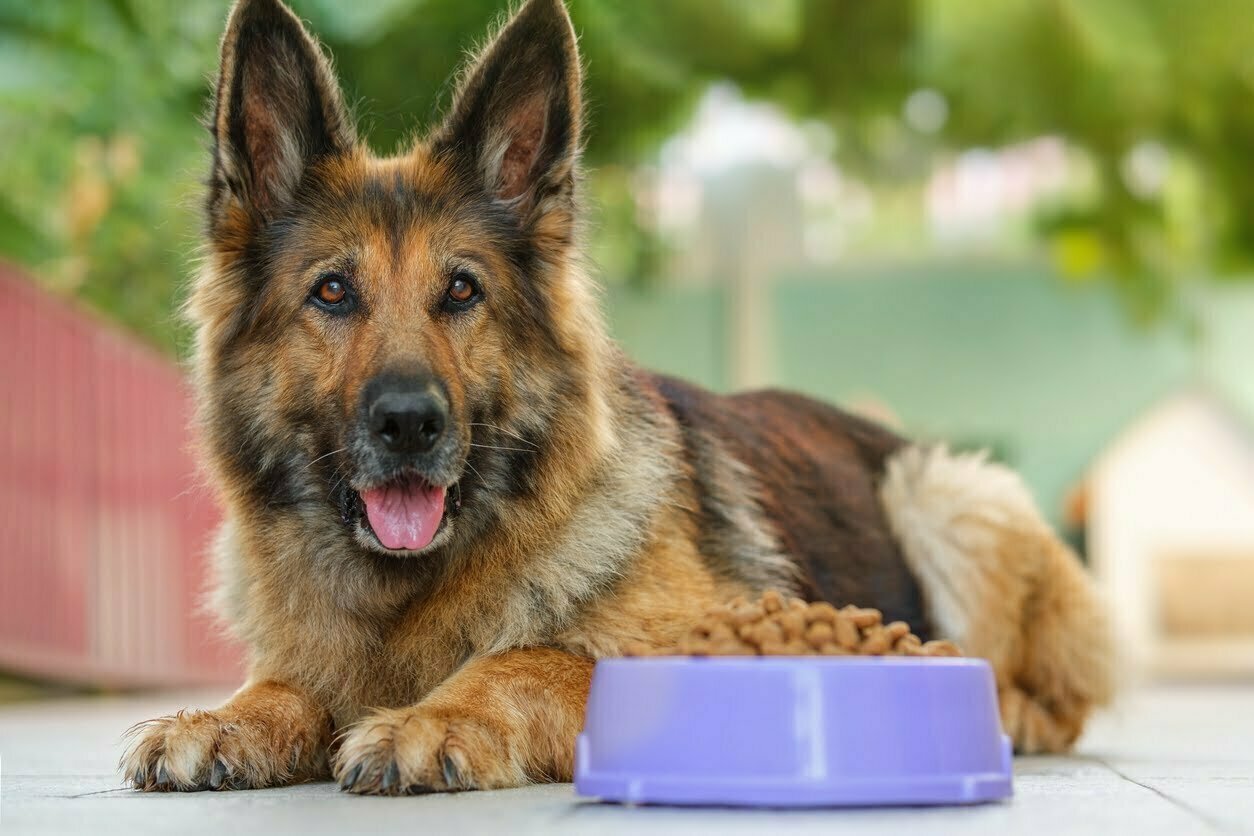
As you know, German Shepherds have really high levels of energy, and so, require different caloric requirements than other dogs.
Let’s talk about the breakdown!
Master Your Dog’s Macronutrients: All About Proteins, Fats, and Carbohydrates!
Let’s talk about the main nutrients, shall we?
The Fats
Well, according to AAFCO, your German Shepherd’s diet should have between 15% and 30% of high-quality fats which are animal-based.
But why should you feed your dog those fats?
Well, fats help develop healthy bones and joints, lubricate internal systems, and also help in making the necessary fatty acids that help aid digestion.
So you see, fats aren’t all that bad!
The Carbs
I’m pretty sure that you think carbs are the enemy, especially since the mass media have created this notion that carbs are to be avoided at all costs.
But did you know that carbs = energy?
Yes, the more active you are, the more energy you require, and the more energy you require, the more carbs you need!
The same goes for your German Shepherd!
So, let’s talk about carbs and your dog’s food, shall we?
The sources of carbohydrates for your German Shepherd are probably the most debated ingredient in dog foods. This is mainly because they come from different sources.
German Shepherds need 5% to 8% of carbohydrates in their diet.
For your German Shepherd, the best sources of carbs include carbs from sweet potatoes, rice, barley, and oats, as they’re easy to digest.
There’s a bonus!
These sources also have some other micronutrients as well.
What should you avoid?
You need to know that low-quality dog food contains wheat-based products, corn, and soy. These ingredients are known to hinder digestion, so you must avoid them at all costs.
The Protein
According to the AAFCO, dog foods for larger breed dogs, like German Shepherds, should contain between 30% and 40% protein, of which a minimum of 22% must be of high quality.
So, what’s high quality?
Well, it simply means the protein you get from some actual meat sources, and not animal byproducts, the low-quality expired meat, or the kind of meat that isn’t fit for human consumption.
Micronutrients for Your German Shepherd!
Do you know what micronutrients are?
Well, I’m here to help!
Micronutrients are what we call “vitamins and minerals” in day-to-day life. They include minerals such as zinc, copper, iodine, etc., and are important for the healthy functioning of the body systems.
Vitamins And Minerals
Vitamins and minerals may amount to a tiny portion of your furry friend’s diet, but they are really important for your friend’s health!
The thing is that a diet that has those vitamins and minerals helps your fluffy friend maintain that shiny and beautiful coat, build up his immune system, and also to prevent negative behavioral issues like aggression.
Let’s talk sources, shall we?
The best sources of vitamins and minerals are….drumroll, please… real fruits and vegetables! This includes ingredients like peas, berries, lentils, etc.
Fresh Water
We’ve talked about food, but do you know how important water can be?
You need to provide your German Shepherd with a supply of fresh and clean water to keep him healthy and happy.
You must clean your German Shepherd water bowl regularly and top the water up a few times during the day.
Some Feeding Guidelines You Need To Follow
One thing to note is that your German Shepherd’s feeding schedule will change as they age.
When it comes to newborn pups of about 4-6 weeks, they need to be their mother’s milk as it contains all the required essential micronutrients that you won’t be able to find in dog foods.
But why should they feed off their mothers?
Well, that’s because these micronutrients help build up the puppy’s immune system during the first weeks of life.
Best Dog Food For a German Shepherd Puppy
You can start the weaning process at around 4 weeks of age and feed your puppy some wet food combined with the mother’s milk. This should be a slow and steady transition.
You should ideally begin by feeding the pup small amounts of this mixture about 3-4 times per day for about 2 weeks.
After that, you can serve the pup wet food without the mother’s milk.
Once the pup reaches the 8-week mark, you can start feeding them dry kibble by adding 10% of the dry kibble to the wet one daily.
This gives your puppy’s digestive system time to adjust to the change.
Best Dog Food For German Shepherd Juniors & Adults
Once your German Shepherd is 6 months old, you can feed them dry food.
But don’t forget the transition!
Spend two weeks transitioning, and then feed your dog twice per day. It’s advised that you shouldn’t leave food down all day because the dogs will continue eating — running the risk of developing obesity.
German Shepherds are known for having a healthy appetite but also have a fragile digestive system. That means they’re more susceptible to allergic reactions and other health problems caused by low-quality dog foods.
The Best Food For German Shepherds Available Now
Now, if you’re looking for the best food to feed your German Shepherd, I have a few recommendations for you!
I’ve picked out some really good products that have been tested repeatedly by many German Shepherd owners. Below are some of our favorite foods.
So, What Should I Keep In Mind?
German Shepherds are smart dogs, love to play around, and have an insatiable appetite to please their masters!
But you need to take care of them as well!
Your responsibility is to keep your best friend healthy and fit by feeding him the best dog food available.
But before all that, you must know how to pick the best foods for your dog! And I hope that this article explains that to you in detail!
There’s another thing.
Because of their large size, German Shepherds need to have healthy blends of proteins, carbohydrates, fats, vitamins, and minerals in their diets.
Let’s recap on the caloric intake of German Shepherds
- The young pups need about 500 calories per day, and this increases as the size of the pups increases
- Young adults need about 1,500 to 1,700 kcal per day
- Fully-grown dogs require 2,000 and 2,250 kcal per day
- The older dogs require about 1,200 and 1,400 calories because of their decreasing levels of energy
But it’s not the calories that matter. Your German Shepherd needs a balanced diet, so he needs a balanced amount of carbs, fats, and proteins.
I hope that this article gave you some insight into what you should be feeding your German Shepherd! If you’ve got any comments, please feel free to contact me!

